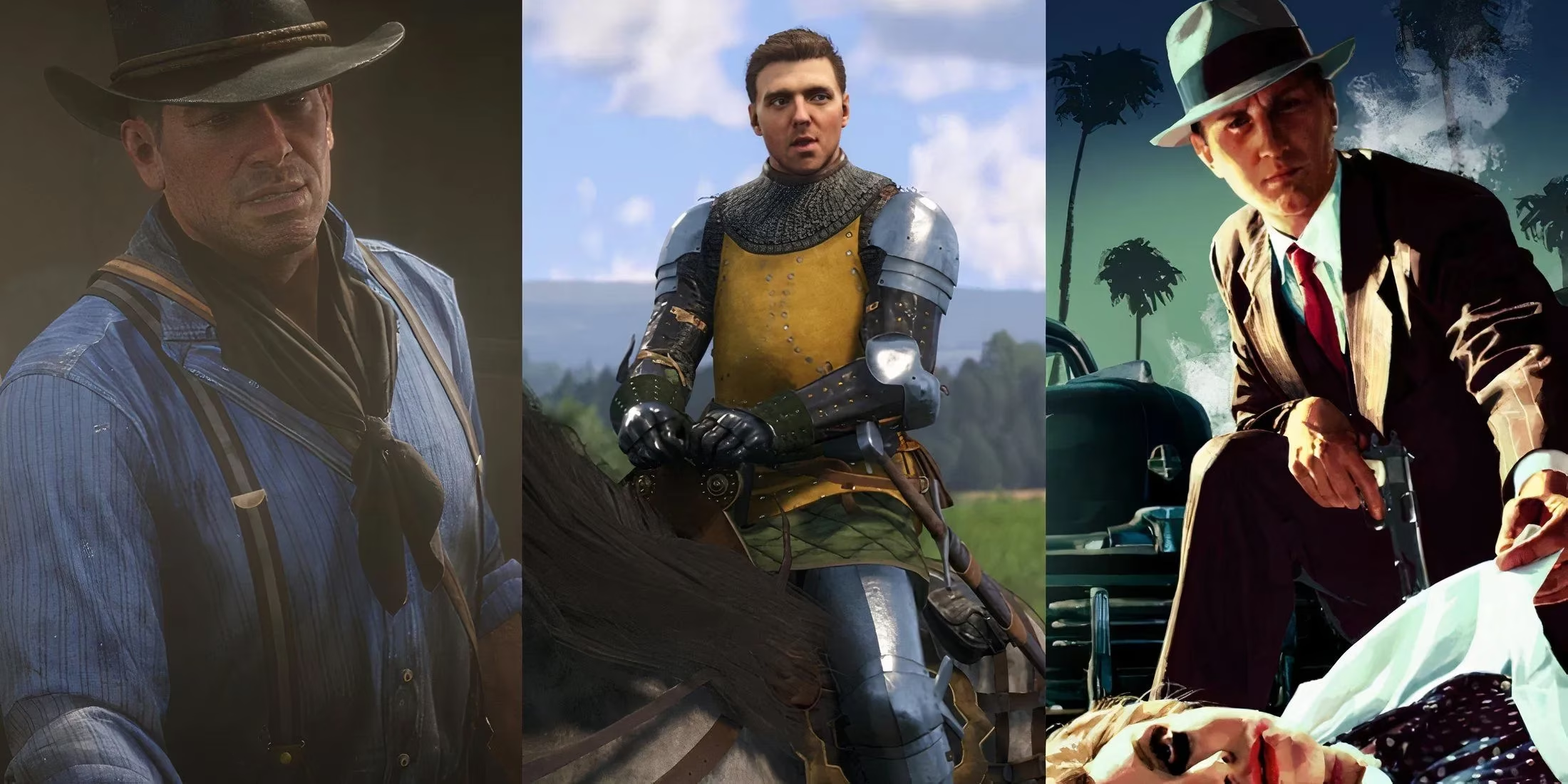I used to think games were just digital playgrounds until I booted up Grand Theft Auto: Vice City last year. Suddenly, I wasn't just stealing cars – I was swimming through an ocean of neon nostalgia, breathing in the electric haze of 1980s Miami. Every synth-wave track on VRock radio felt like a pulsating time capsule, and the pastel suits NPCs wore might as well have been tailored by John Hughes himself. That pixelated world, dripping with Scarface bravado and Miami Vice chic, taught me more about America's cultural cocaine hangover than any textbook ever could. It was messy, exaggerated, and historically loose as a drunk tourist's storytelling – but it made me crave real history buried beneath the pixels. 
My journey accelerated when I discovered The Saboteur. Nazi-occupied Paris greeted me in oppressive greyscale, like a photograph drowning in its own sorrow. Yet as I helped the resistance reclaim arrondissements, color flooded back – not like a sunrise, but like a butterfly tearing through a monochrome chrysalis. Sure, playing as a race-car-driver-turned-saboteur felt improbable, but learning it was inspired by real-life war hero William Grover-Williams? That revelation hit me like a perfectly timed Molotov cocktail. The game's fictional characters danced around actual resistance struggles, making wartime oppression feel tangible – especially when hiding from patrols beneath shadowed gargoyles that seemed to weep stone tears.
Then came my Victorian obsession with Assassin's Creed Syndicate. Climbing Big Ben felt less like parkour and more like ascending a clockwork dragon's spine, each gear grinding with industrial revolution anxiety. I'd eavesdrop on factory workers discussing child labor laws while smelling digital coal smoke – an odd sensory illusion that stuck with me. Meeting Darwin and Marx in back-alley pubs was surreal, though I chuckled at Jacob Frye's anachronistic leather jacket (a fashion crime worse than the Ripper's murders). The game's compressed London map became a cluttered curio cabinet:
-
🏭 Industrial Grit: Chimneys belching smoke over Thames
-
👑 Royal Whispers: Queen Victoria's cameo in Buckingham
-
🧒 Social Commentary: Orphanage raids highlighting class divides
It wasn't flawless history, but it made me research actual 1868 labor reforms – something no dry documentary ever inspired.
My next stop was Ghost of Tsushima. Roaming 1274 Japan felt like wandering through a living ukiyo-e painting, where every bamboo grove swayed with artistic melancholy. The Mongol invasion's brutality struck me most: watching their fire arrows rain down like angry comets while Jin Sakai – a fictional hero – embodied bushido principles. I appreciated how Sucker Punch nailed tangible details:
| Historical Element | Game Depiction | Personal Impact |
|---|---|---|
| Mongol Warfare | Flaming arrows & siege tactics | Understood technological disparity |
| Landscape | Exact flora from Tsushima Island | Felt transported via PS5 |
| Cultural Rituals | Haiku writing & shrine offerings | Learned mindfulness practices |
The poetic liberties didn't bother me; they were like kintsugi gold filling historical cracks, making the era glow brighter.
Mafia: Definitive Edition plunged me into 1930s Chicago-by-proxy. Lost Heaven's streets oozed Great Depression despair – potholes felt like societal wounds, and every Art Deco building whispered Prohibition secrets. Driving period-accurate cars (mostly!) while hearing radio broadcasts about breadlines made capitalism's collapse visceral. The mob hierarchy felt as rigid as Catholic liturgy, with Tommy Angelo's rise mirroring real syndicate structures. That story stuck with me longer than any gangster film.
But Egypt? Oh, Assassin's Creed Origins rewired my brain. Sailing the Nile at sunset, pyramids cutting the horizon like sandstone knives – I spent hours just using its educational mode. Walking through Alexandria's library felt like brushing against Plato's ghost. The reconstruction was so precise, my historian friend actually uses it for virtual lectures! Cleopatra’s portrayal, based on real accounts, shattered my Elizabeth Taylor-inspired misconceptions. It proved games could be scholarly tools, not just entertainment.
That realization exploded with L.A. Noire. Investigating 1947 Los Angeles was like dissecting a perfectly preserved crime-scene beetle under glass. Every fedora, every jazz riff, every period-accurate street sign felt researched with forensic obsession. Interrogating suspects taught me postwar American anxiety better than any essay – the lies flickering across their faces like damaged film reels. It wasn't just setting; it was sociological taxidermy.
Then Red Dead Redemption 2 happened. My months in its 1899 America felt like wearing history as a second skin – one constantly itching with moral complexity. The racism, industrialization pains, and vanishing frontier culture unfolded organically:
-
🚂 Train Robberies: Highlighting dying outlaw culture
-
🏞️ Wildlife Ecosystems: Teaching animal behavior/ecology
-
💔 Arthur's Journal: Humanizing historical trauma
Dutch's gang collapsed like a sandcastle against modernity's tide – a metaphor that haunted me offline.
But nothing prepared me for Kingdom Come: Deliverance 2. Warhorse Studios didn’t just recreate 15th-century Bohemia; they forged a temporal anchor weighing more than Prague Castle. Learning swordfighting felt like deciphering medieval IKEA instructions – every parry required muscle memory deeper than instinct. I got lost in:
-
🥖 Realistic Survival: Eating stale bread affecting stamina
-
📜 Latin Manuscripts: Actual period texts in monasteries
-
⚔️ Combat Systems: Needing real training, not button mashing
It was history without guardrails – a terrifyingly authentic serf simulator where one wrong turn could end with bandits turning Henry into a pincushion. The world breathed with such meticulous detail, I half-expected my controller to rust.
Looking back at Vice City's neon glow from 2025, I realize these games were secret history lectures disguised as entertainment. They didn’t just teach dates or wars; they made eras felt – the sweat, the injustice, the fleeting beauty. Like archaeologists using VR brushes, developers are dusting off forgotten worlds and handing us the controllers. And that? That’s the real treasure no loot crate could ever contain.